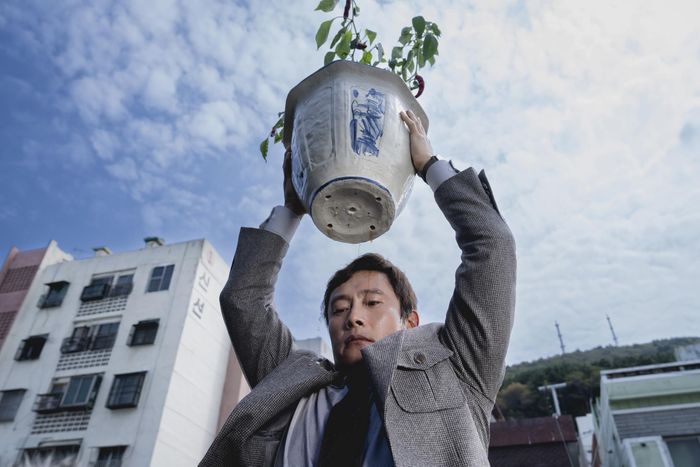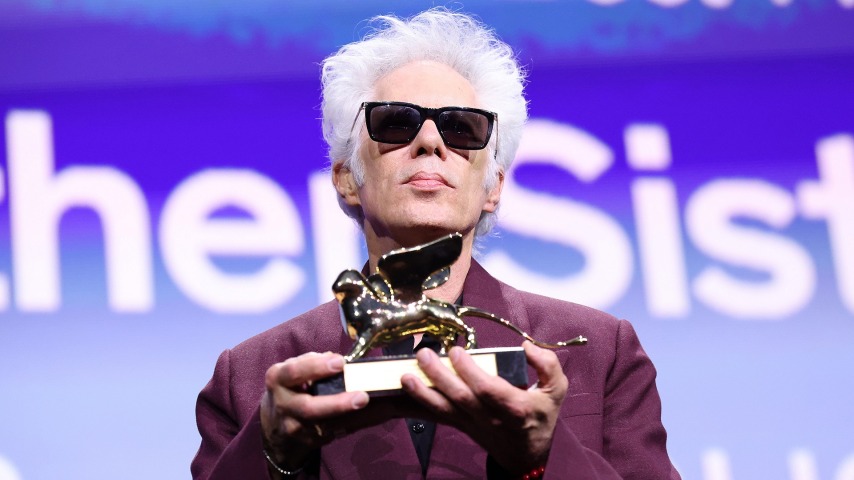
Park Chan-wook’s superpower is his ability to sell us on behavior that would not withstand any kind of scrutiny in other films. Park’s characters do things we might deem irrational or implausible or downright nonsensical in most contexts, but he somehow convinces us, thumbing his nose at realism and leaning into craziness. He can pull this off because he’s an unabashed expressionist, willing to bend cinematic time and space to put us into his people’s heads. They might be a little nuts (and maybe a lot), but by the time it’s all over, we sometimes understand Park’s characters better than we understand ourselves.
Park’s latest, No Other Choice, has been one of the first big standout titles at this year’s Venice Film Festival, premiering to near-universal adulation. And it offers a perfect example of how the director coaxes his audience into total identification with people doing insane things. It’s the story of a veteran paper mill manager who gets downsized after the company where he’s worked for 25 year is bought by Americans. Having defined his whole life through his job, and desperate for money to support his family and pay for his new house, You Man-soo (Lee Byung-hun) is determined to find a new position in the field of high-end paper. Unfortunately, amid all the consolidation going on in his industry, he must compete with several other candidates who might be more attractive, despite his having won the 2019 Pulp Man of the Year, an award given to exceptional people in the competitive world of paper mills. So, he decides to kill the others. He has neither the stomach nor the skill for murder, but as he repeats to himself at various points, he’s also got “no other choice.”
The movie is an adaptation of Donald Westlake’s 1997 satirical thriller The Ax, which was also adapted by the great Costa Gavras in 2005. You can’t really pull off a story like this without going either full-on genre or comedic. I remember Gavras’s film being noirish, but Park’s version veers between wider extremes: We already know he’s a master of macabre slapstick, but he also doesn’t undercut more earnest moments of drama. As a result, the film seems to feel everything deeply. It opens with Man-soo and his family in a blissful idyll, greeting the arrival of fall, barbecuing the pricey eel he just got from his company, and leaning in for a great big family group hug, with even their two dogs getting in on the action. “I’ve got it all,” Man-soo whispers to himself. The irony is so overt it could be a Simpsons gag, but Park gets us emotionally invested in the moment through the sheer beauty of his filmmaking: Mozart’s Piano Concerto No. 23 plays on the soundtrack, the wind shifts as the first leaves begin to fall, and the camera tracks into Man-soo’s contented face, right before Park dissolves slowly and ominously to a giant roaring industrial drain at the paper mill, a big fat symbol of where our hero’s life will soon be headed.
Park makes sure to pile on the exigencies for Man-soo: He’s just recently bought the house that he grew up in, and that his family had to sell off years ago after their pig farming business fell apart; his young, neurodivergent daughter might be a cello prodigy, which will require even more expensive lessons with world-class teachers; his wife Miri (Son Ye-jin) is really into her dance classes, and he fears losing her forever if he can’t stay afloat. He’s also a recovering alcoholic and he really needs to keep things together. His whole life, in other words, is a house of cards that will come crashing down if he doesn’t find gainful employment soon.
But as Man-soo’s ridiculous, murderous scheme brings him into closer contact with other paper men, he realizes they’re all in the same boat; everybody’s hanging by a thread. Early on, we see group therapy sessions for workers who’ve lost their jobs; dozens of men tap their heads in unison, chanting “I am a good person” and “Losing my job is not my choice.” In this world, people define their self-worth based on their ability to provide for their families — and when unemployment becomes an existential threat, why shouldn’t a guy like Man-soo start killing those who stand in his way?
Some will surely be reminded of 2019’s Parasite, which of course turned Park’s good friend and occasional collaborator Bong Joon-ho into a household name. (For what it’s worth, Park announced his intentions to adapt The Ax more than 15 years ago.) The two movies do share a portrait of capitalism in extremis, in which the race to hold onto increasingly smaller pieces of a rapidly dissolving pie feeds more surreal transgressions. Their cinematic indulgences — their carefully coordinated comic and suspense set-pieces — aren’t respites from their moral vision, but rather enhancements of it.
But Park’s ability to manipulate his imagery is something else entirely. His dissolves and overlays and intercutting are formal and sensual expressions of his great subject: that all of us are trapped in the same socio-economic and psychological nightmare. The director loves to bring seemingly disparate elements together within the same frame: a quiet nighttime highway on one side of the screen, sharply divided from a roaring seascape on the other; murderous goings-on outside a house, while someone makes love inside. He creates a world of whisper-thin boundaries, where chaos and carnage lurk beyond the woods and walls of ordinary life, where one misstep can force you from one reality into another. At some point, we realize that the world he’s describing is our own.
Source link


